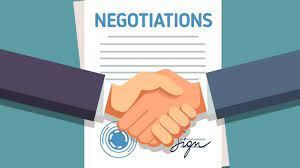The impact of phone addiction and social media on your brain
I’m a dopamine junkie. If it brings immediate gratification, I’ve probably done it or been addicted at some point. I’ve been sober for nearly 5 years, but still have one addiction that remains:
MY CELL PHONE!
No matter how hard I try, I always find myself habitually reaching for my phone in between meetings, or when I’m with my family at night.
Doesn’t matter whether it’s e-mail, SMS, LinkedIn, Instagram, Youtube, or ESPN, I feel like I’m always reaching for my phone for a quick dopamine hit.
I recently started putting my phone away at night so I can be present with my family and play with my kids without distraction.
But even when my phone is gone, I feel the urge to go check it and need to resist.
The struggle is real.
While it may seem harmless to check your phone constantly, I think that there are many dangers which impact our brains and should be taken very seriously:
1. Dopamine overload: when we constantly check our phones or social media, we activate the pleasure center of our brains (Ventral Tegmental Area and Nucleus Accumbens). When we constantly stimulate the pleasure center, our brain experiences “withdrawals” when it’s not getting stimulated, leading to feelings of boredom, restlessness, and difficulty focusing.
2. Prefrontal Cortex Atrophy: Executive functions occur in a different part of our brain called the Prefrontal Cortex. This area is responsible for future planning, problem solving, decision making, storytelling, and other executive functions. In sales, this is the area of your brain which is active when you do “deep work,” such as POV development or account planning.
In our brains, what fires together, wires together. This is what’s referred to as “neural plasticity,” or the brain’s ability to change and adapt its structure and function in response to stimuli.
If we are regularly doing deep work, the prefrontal cortex grows. And if we are constantly distracted or seeking immediate gratification within the pleasure center, it atrophies.
Just like speaking a language. If you don’t use it, you lose it.
3. Comparison: With social media apps, there’s a strong bias for people to share what living their best life looks like. Even on business platforms like LinkedIn, it’s easy to see how well others are doing and compare yourselves to them, which can make you feel inadequate or lacking. The truth is that we have no idea what’s going on behind the scenes of the people we see online. We all struggle in some way, shape, or form, but most people don’t share what their struggles look like publicly. Which leads many to feel like they aren’t enough. Comparison is the thief of joy.
For these reasons and many others, I’m actively monitoring how much I am using my cell phone, and making an effort to put it down whenever possible in and outside of work.
In today’s training video, I share why I believe cell phone and social media addiction are extremely dangerous and should be taken seriously.
I hope you find this information valuable, and if you struggle with this, just know that you are not alone and I’m right there with you.
Let’s fight the good fight together so we can be more present for all the people and wonderful things that surround us in real life, not on our screens.
You can find the full video here: https://youtu.be/QkRRvpIKpjw
Share:
Weekly Sales Tips

Be the first to know:
Featured Post:
What’s the #1 key to negotiating which very few people talk about? Knowing your worth and believing it!…
